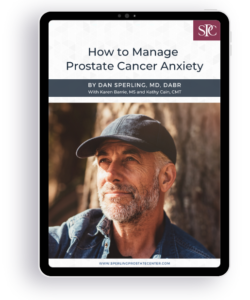What comes to mind when you hear the expression “post traumatic stress disorder” or PTSD? Perhaps it conjures up images of war veterans, crime victims, or natural disasters. We recognize that when something beyond a person’s control creates sudden or catastrophic harm, the person is shaken by it, often deeply.
Trauma is defined as a deeply distressing or disturbing experience. Going through a traumatic event etches itself on our brains, and can even cause biochemical changes in the brain. Even when the event is not so catastrophic that it leads to PTSD, a person can have powerful and lingering emotions. While each person’s response to trauma will be unique, it’s possible to generalize about the feelings that get stirred up by a distressing situation.
Emotional reactions to trauma
Psychologist Seth Gillihan, Ph.D. identifies some emotional reactions to trauma:
- Fear and anxiety – This is probably the most common response, and while it usually diminishes over time, a reminder or memory can bring it back.
- Anger – This often arises as a result of looking for someone or something to blame. We may be angry at ourselves if we feel like somehow we were responsible for setting ourselves up. While full-blown anger may not occur, we may be more irritable and snap at loved ones without realizing why.
- Sadness – it’s normal to feel sad after trauma, especially if loss is involved.[i]
Prostate cancer can be traumatic
When men report their feelings after prostate cancer diagnosis, it is evident that many who were aggressively treated feel devastated. A recent survey of 928 men and their caregivers reveals that the emotional impact of whole-gland treatment parallels trauma.[ii] This is due a) to the unexpected diagnosis, and b) living with post-treatment side effects that unexpectedly rob them of manhood.
- Fear and anxiety – Almost 10% of respondents were eventually found to have anxiety or panic disorders. With regard to fear, 68% said they worry that their cancer would come back. Men whose sexual lives were disrupted by treatment side effects had fears of partner abandonment.
- Anger – While the diagnosis itself may not have caused feelings of anger, the aftermath of treatment left many feeling frustrated and dissatisfied. Half were bothered by treatment side effects. Coping with fatigue, pain or bladder problems was troubling.
- Sadness – Aggressive prostate cancer treatment can deprive a man of natural function and change his sense of self – truly a sad loss. The survey found that nearly a quarter of men had erectile dysfunction, and 53% reported general sexual dysfunction, leaving them no longer “feeling like a man.” Overall, two-thirds revealed dissatisfaction with their sex lives, and 62% expressed sadness.
Patients who were struggling with their feelings felt inadequately cared for. While three-fourths reported satisfaction with their medical care, they claimed that they lacked sufficient mental health resources and treatment, leaving many wanting support in order to deal with anxiety and depression.
According to the news story about this survey,
Emotional upset often persisted. Although 40% were in remission, 14% had at least a single recurrence. If they had to sum up PCa in one word, men chose “scary,” “life-changing,” and “manageable,” among other terms. One respondent said that, while breast cancer survival is often considered a badge of honor, “men who survive PCa wear it as a badge of shame.”[iii]
Focal therapy for the right patient
Today, most urologists acknowledge that not all prostate cancer is multi-focal, and that most cell lines are not dangerously aggressive. Nevertheless, urologists are still professionally biased in favor of prostatectomy or improved radiation modalities. Numerous studies of patient experience after such treatments demonstrate that patients struggling with urinary or sexual issues regret their choice.
Not so with focal treatment. When patients are carefully qualified based on multiparametric MRI (mpMRI), in-bore targeted biopsy, and biomarkers, they may elect a treatment targeted to the cancer, with responsible follow-up using the same detection/diagnostic methods.
The Sperling Prostate Center offers a whole-care suite of advanced 3T mpMRI for tumor detection, in-bore MRI-guided targeted biopsy, and biomarker evaluations. If a patient is a candidate for focal therapy, our Center is the recognized pioneer in Focal Laser Ablation (FLA).
Visit our website or contact us for more information.
Download Our Free Ebook: “How to Manage Prostate Cancer Anxiety”

Don’t let anxiety over prostate cancer run you. Instead, learn how you can take charge and empower yourself to manage stress and boost positive treatment outcomes with our “first aid kit” of practical tips and tools.
NOTE: This content is solely for purposes of information and does not substitute for diagnostic or medical advice. Talk to your doctor if you are experiencing pelvic pain, or have any other health concerns or questions of a personal medical nature.
References
[i] Gillihan, Seth. “21 Common Reactions to Trauma.” Psychology Today, Sep. 7, 2016. https://www.psychologytoday.com/us/blog/think-act-be/201609/21-common-reactions-trauma
[ii] Persaud, Natasha. “Survey Highlights Emotional Responses to Prostate Cancer.” Renal & Urology News, April 17, 2018. https://www.renalandurologynews.com/prostate-cancer/survey-highlights-emotional-responses-to-prostate-cancer/article/758344/
[iii] Ibid.


